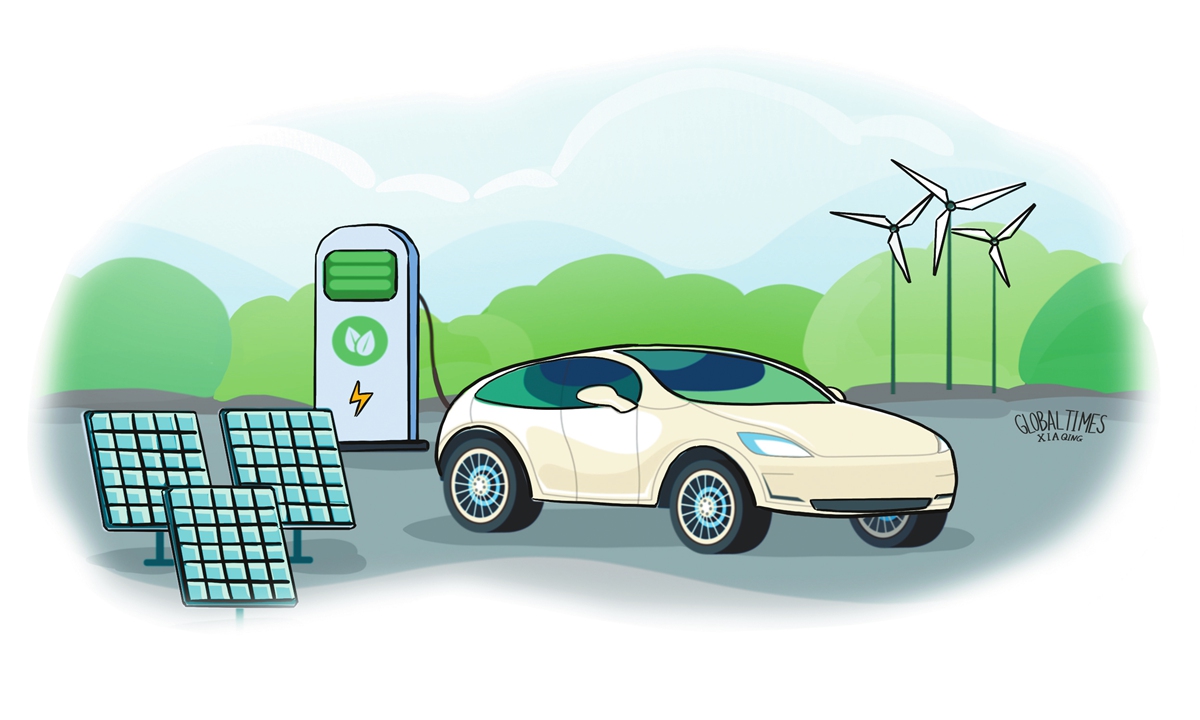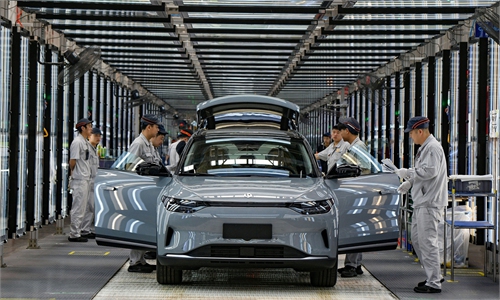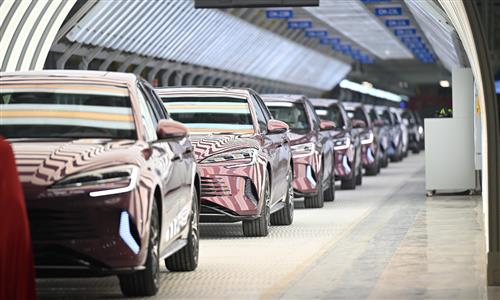
Illustration: Xia Qing/GT
As the 2024 Paris Motor Show entered its second day on Tuesday, the presence of Chinese car companies garnered widespread attention. Despite the European Commission's plan to impose tariffs of up to 45 percent on Chinese electric vehicles (EVs), Chinese companies showcased new models and layout plans at the event, demonstrating their commitment to overseas growth amid rising competition and protectionism."Going overseas" has become a key focus in the Chinese automotive industry in recent years. Alongside rising vehicle exports, Chinese car manufacturers such as BYD and SAIC Motor have begun to customize car roll-on/roll-off (ro-ro) ships, while the overseas factory initiatives of Chinese automakers are progressing steadily to meet growing global demand.
These developments collectively suggest that the "going overseas" strategy is integral to the long-term vision of Chinese car manufacturers, which remain undeterred by trade protectionism from certain Western countries.
In late July, SAIC Motor launched the second-largest clean energy ro-ro car carrier in the world, built by the China State Shipbuilding Group. This development exemplifies the recent "commissioning ship craze" among Chinese car manufacturers.
BYD in July opened its Thailand plant, as its 8 millionth new-energy vehicle rolled off the assembly line in the factory, a milestone in the company's overseas expansion, according to the Xinhua News Agency.
These examples show that Chinese cars are gaining popularity in international market. As Chinese automotive brands get stronger, vehicle exports reflect an overall upgrade in Chinese manufacturing. The sales potential for domestic automotive products, particularly EVs and smart connected cars, is expanding to meet the evolving demands of overseas consumers.
In this trajectory, the outlook for Chinese car manufacturers collectively "going overseas" appears quite promising. With enhancing global consensus and emphasis on green transition, Chinese manufacturing is making significant and diverse contributions to the global market.
China's automotive industry is at a critical juncture in its process of "going overseas." While initial progress has been made, challenges such as de-globalization and rising protectionism are disrupting global cooperation in the new-energy vehicle sector. Nevertheless, the momentum of Chinese automotive companies expanding internationally remains strong.
Industry insiders believe that despite facing numerous obstacles, there is still an expectation for growth in automobile exports this year. It is anticipated that the annual growth rate of automobile exports will be between 15 and 20 percent, with the export volume expected to reach 6 million units, of which EVs are projected to account for over 35 percent.
The development of smart and connected EVs has brought significant changes to the global automotive industry. China's efforts to expand its automotive presence internationally have been arduous and have made a substantial contribution to the transformation of the global automotive sector. This not only promotes the expansion of market scale but also pushes the integration of industrial chain.
Over a decade ago, Chinese cars ventured into international markets with the strategy of "gaining exposure without profiting." Today, however, Chinese EVs are priced competitively based on production costs. Additionally, firms like automotive lithium-ion battery maker CATL are exporting not only their products but also their industrial expertise and technology.
Chinese car companies "going overseas" is beneficial for local economies. It is the average consumers who will eventually bear the brunt of EV tariffs. The consequences of blocking Chinese car companies from expanding in overseas markets would be a lose-lose situation, and protectionist approaches cannot stop the trend. The only effective approach is to carry out win-win cooperation.
The author is a reporter with the Global Times. bizopinion@globaltimes.com.cn



